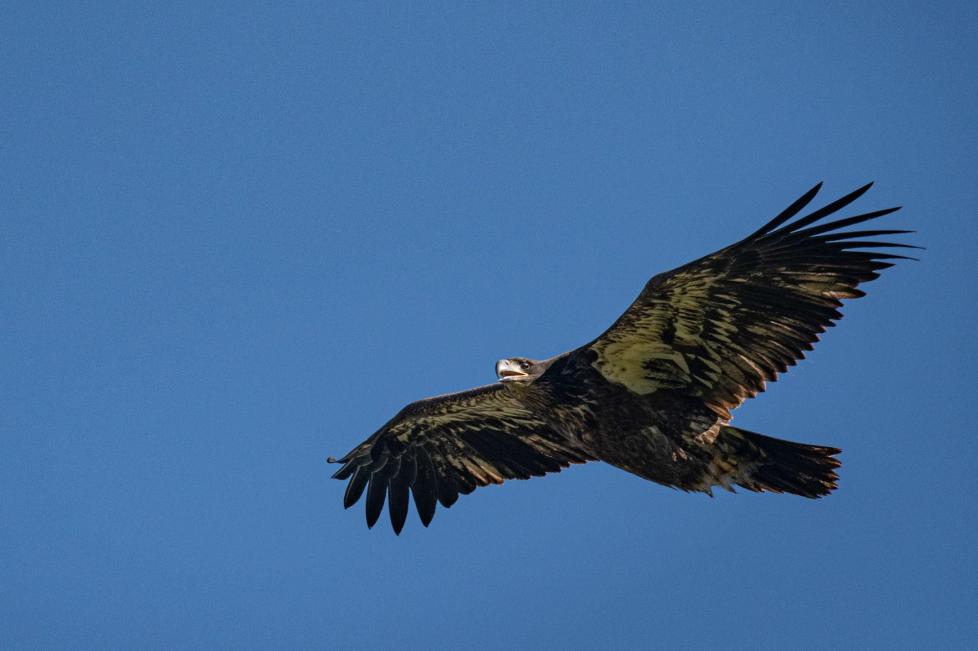Snowball effect: Farmer dealing with eagle depredation still waits for reimbursement

MURTAUGH – Since April, Rocky Matthews has lost 60 sheep from confirmed eagle kills and another 15 have “just disappeared.”
“If I had no bad luck, I wouldn’t have any luck at all,” Matthews said.
The depredation by bald eagles has reduced his lamb inventory, which in turn limited his ability to support the rest of his sheep operation. No lambs to sell meant there was no money to purchase corn seed. No corn crop meant no feed to harvest for animals. And with no cash, Matthews couldn’t purchase additional feed for the winter.
“It’s a snowball effect,” he said.
The one bright spot? The U.S. Department of Agriculture’s Livestock Indemnity Program (LIP).
Under LIP, Matthews should be entitled to 75% of the market value for each confirmed kill. But he hasn’t seen a single dollar.
Typically, LIP applications are processed and approved by the local Farm Service Agency County Committee within 30 days, said a USDA spokesperson over email. That timeline can change, especially if the FSA is waiting for required documentation.
Producers are required to provide evidence of losses. This can include proof of beginning and ending herd inventory, tax documents, third-party certification, or date-stamped pictures and videos of losses.
“We understand that there is a process but it’s past that process,” Matthews said. “I did everything I was supposed to.”
He submitted proof of herd inventory and a copy of the Wildlife Services depredation investigation report. Wildlife Services – part of the USDA’s Animal and Plant Health Inspection Service – handles such conflicts between humans and wildlife.
An investigator came out to his farm April 26 and filed a report in addition to performing necropsies, the equivalent of a human autopsy.
“The evidence basically just speaks for itself,” Jared Hedelius, state director for Wildlife Services, said in a telephone conversation.
“All evidence collected is 99.9% indicative of eagle predation on lambs,” the official investigation report says. The report lists 20 confirmed kills and 30 probable.
The difference between Matthews’ numbers and Wildlife Services’ numbers is the number of sheep killed before or after the investigation or those that just disappeared, Hedelius said.
After such reports are filed, the wildlife services’ involvement is over and the case moves on to the county Farm Service Agency office.
Eagle depredation cases are rare. Wildlife Services investigates one or two each year in Idaho.
Matthews is aware his case is unusual; he’s a member of the Twin Falls County Committee, the same body that signs off on LIP claims. Because of this, he has recused himself from the decision-making process.
“There is no reason for this to be months later and nothing has happened,” Matthews said. “I am hoping we (the committee) never treat other producers this way.”
The Times-News asked the agency why his case has yet to be approved.
“Due to privacy protocol, we cannot discuss application or payment status for individual producers,” a national USDA spokesperson wrote in an email to the Times-News.
The whole ordeal has taken a toll on the farming family. Matthews’ wife, Becca, continues to document their operations in YouTube videos.
“You can feel the pain in her voice as she’s recording some of those,” he said.
Matthews never expected his story to receive national attention. News outlets including The San Francisco Chronicle, Field and Stream, Montana Outdoor and Fox News retold his story in June after it was reported by the Times-News.
Bald eagles kill 54 sheep at Magic Valley farm
Great Pyrenees dogs, bred to guard livestock, roam the Matthews property to protect the herd.
After the attacks, he moved the lambs inside a covered arena but the eagles continued to attack. Eventually, Matthews moved all the lambs to a neighbor’s property until they grew larger.
“No matter what you do, you can’t be everywhere at once,” Matthews said. “Other than building a cover to keep them in, I just don’t think there is much a guy can do.”
Friends of the family started a GoFundMe account to raise money for an enclosure to protect next year’s crop of lambs.
Matthews doesn’t want people to use his story to argue for fewer federal bald eagle protections.
“Out of respect for our symbol of freedom, I still believe that they need a higher level of protection than most protected animals.”
View more on Mainline Media News